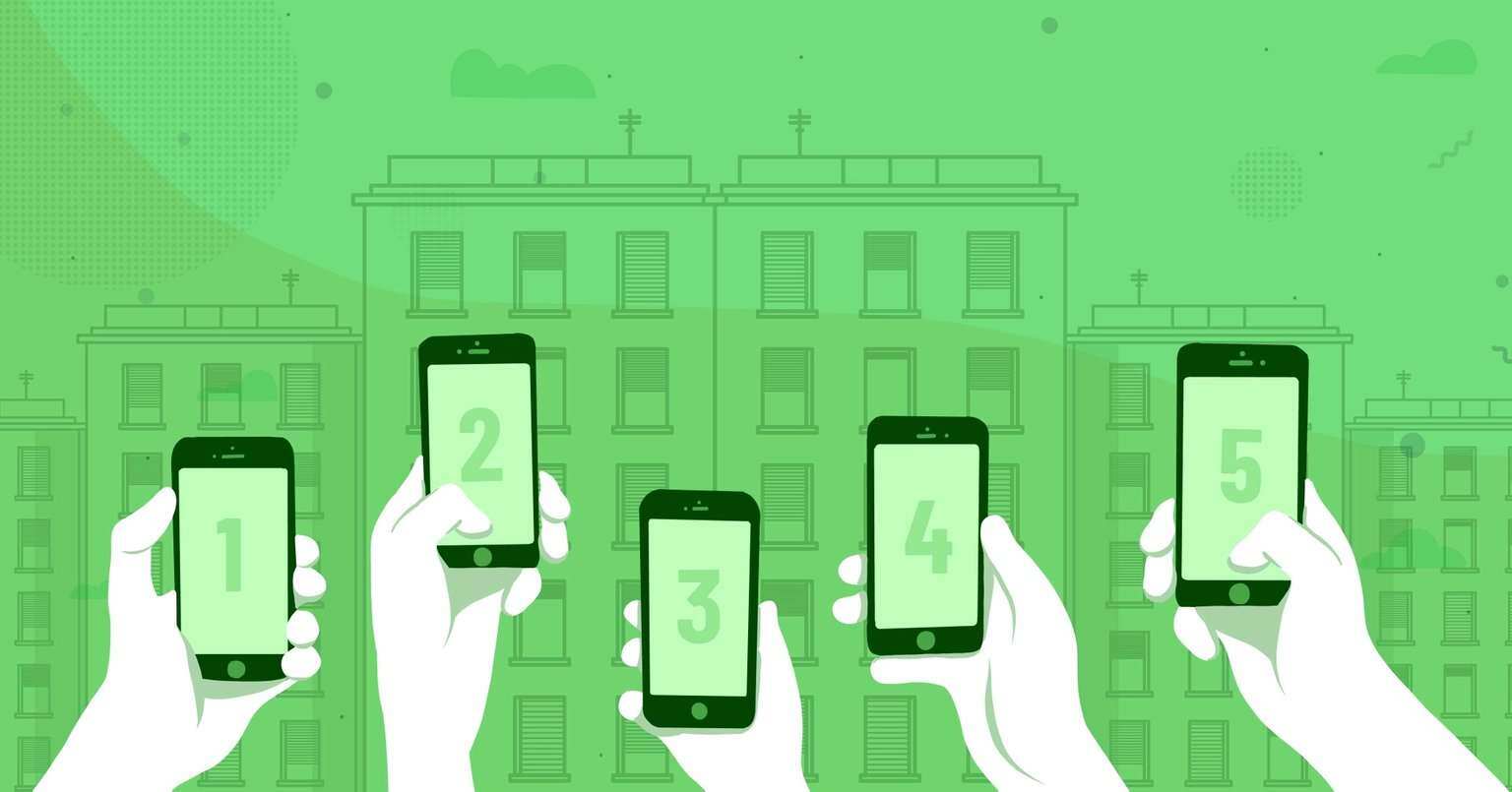
Avoid Mobile App Startup Failure
5 Critical Aspects to Starting Your App Company
Nobody launches an app startup with the intent to fail, but the cold truth is that most do.
But why?
It’s not always a poor concept at fault. There have been plenty of great app ideas that never caught on and even more that downright bombed.
No, it’s rarely the concept. Instead, it’s the execution, the plan, or lack thereof.
Which brings me to our topic of discussion for the day: How to avoid app startup failure.
We alway want the best for our clients. In fact, we want the best for everyone. The most successful people and businesses in the world are those that support the success of others, and it’s wise to remember that.
Which is why we’re laying it all out on the table. This post covers:
- Why most app startups fail
- How to put a strategy in place to ensure your app startup doesn’t fail
- What to do to help your app succeed in the long term
It’s as simple as that. Well, I say that, but there’s a lot that goes into each of those topics.
So let’s get started!
Why Most App Startups Fail and How to Make Sure Yours Doesn’t
Before we get into how to help your app succeed, we need to look at the areas most startups neglect. It’s imperative that you learn from the mistakes of others before you launch your own idea. Otherwise, you may repeat them.
Issue #1 — Poor Preparation/Lack of Planning and Strategy
Planning is essential to any startup, so your app startup doesn’t get a free pass on this one. Most apps are built around a very loose guideline and thrown up into the app markets with nothing but hopes and dreams that it will catch on.
In fact, there are plenty of great ideas that make it through a beautiful design process just to fail upon launch.
Why?
Primarily because they didn’t have a strategy in place post-launch. These app startups are typically let down by a few problems that could have been easily rectified.
What am I talking about? Let me give you an example.
Scenario 1 - Say you launch an app that looks great and works really well. Unfortunately, your user interface is a little off and your ideal user isn’t engaging with your app as much as you expected.
Due to your lack of a clear, detailed strategy, you don’t know who your ideal user is, and don’t know how to test different interface options to makes positive changes in your engagement.
So your app sits, and fizzles, and you’re never able to properly monetize it. There are a few things you could have done to prepare your strategy for this scenario and prevent failure. Let’s take a look...
Scenario 2 - Before you even get to the design process, you’ve spent a considerable amount of time putting a development plan in place. You’ve also outlined your pre- and post-launch strategies for success.
You’ve identified your ideal user, designed an interface that you think will appeal to them, and delivered the features and functionality they’re looking for, so you launch. Your app isn’t getting the engagement you were hoping for, but you’ve installed an app analytics and you’re able to test the changes you make to improve.
You make subtle changes that appeal to your users, fix a few bugs that were standing in their way and, “viola,” your user engagement triples. Downloads increase, your time on app skyrockets, and people begin to leave positive reviews in the marketplaces. Not only that, they’re recommending your app to their friends.
But, you don’t stop. You continue to test and you fix a few more bugs and streamline a process or two that continues to improve the user experience. Before you know it your app has a substantial, loyal, frequent user base and it’s time to start thinking about monetization.
But you don’t need to think long, because you already have a mapped-out monetization strategy in place.
That, my friends, is the benefit of a powerful strategy.
A proper plan will enable you to outline all of the keys you’ll need to succeed and ensure that you hit your mark every step of the way. It will also allow you to understand what you’ve missed and why, a major component to app startup success.
Issue #2 — Lack of Quality Design
App design will play an incredibly important role in your app’s success.
Am I stating the obvious? Good.
Today, good app design simply may not cut it. It’s those apps that make the extra effort that end up blowing away their users. After all, it’s the end user who is the most important critic of your app. What they think about your app matters more than anyone else's opinion ever could.
So invest some time, energy, and yes money into the design of your app. You’ve heard the expression, “It takes money to make money.” Well, while that may not always be true, a less than stingy design budget will give you a great head start to success.
You’ll be able to hire an expert design team, which means you’ll have the collective experience and expertise of a group of truly talented people. There are ways to create successful apps by shipping your design off on a shoestring budget, but the chances that will actually pan out like you had hoped are slim to none.
Outsourcing is always more difficult and less predictable.
Instead, an investment in a well thought-out design will go a long way toward making your app one that people actually use. Successful apps are those that are used, and people don’t use apps that are just “okay.”
People want an app design that:
- allows them to accomplish their intended goals quickly and efficiently
- delivers intuitive functionality
- looks stunning from top to bottom
- wows and surprises with extra features and functionality that go above and beyond
Develop an app that makes your users wonder how they ever lived without it before.
Issue #3 — Little or No Post-Launch Follow-Up
Once your app is designed, launched, and even initially optimized, you’re not done. Your app startup is a business and, like any business, it requires continual care and attention to keep things running smoothly.
Another major contributor to failure is a lack of follow-up. Where an app may start off on the path to success, achieving it in the long term requires more attention than some are willing to give.
- Is your app still functioning properly on all devices?
- Is your app incorporating functionality that is in line with current trends and technologies?
- Does your app need to be optimized?
- Does your app need to be updated?
Pay attention to what your users are saying!!!
Read the reviews your users leave and take their suggestions seriously. Your users are the ones who matter most and they’ll be able to clue you in on what needs to be changed, improved, or eliminated.
Eventually your app will need a tune-up, or even a major overhaul to continue functioning properly and remain relevant in this increasingly competitive space. Put in the work required to keep your app moving in a continually upward spiral and you’ll see it payoff in long-term success.
Issue #4 — Idea Doesn’t Blow Users Minds
I’ve talked a lot about what can be done to make sure your great idea achieves success, but suppose you don’t have a great idea. Better yet, suppose you don’t have a mind-blowing app idea. How do you plan to stand out amongst the crowd?
There are currently over 2 million apps in the App Store and Google Play. That means that, no matter what your app does, no matter how cool it is, it will have plenty of competition to contend with.
If your app doesn’t do something better, faster, and easier than your existing competition, what reason do people have for downloading it?
Let’s go back to the first issue for a moment. Part of putting together a killer strategy is doing some in-depth research of your competition.
Head into each of the app markets and find every app you can that works in a similar way to yours. In particular, look at the following components:
- How does using each app make you feel?
- Are there any places where you get stuck or feel frustrated?
- Is there a way your app could seriously improve on their concept?
- What do you love about the app that you could take to the next level in your design?
- Even if their functionality is top notch, can you improve design and ease of use?
Then ask yourself:
- If you can’t find a way to improve things, is it worth building a competitor to an otherwise excellent app that is already established?
- If you can improve things, will it be enough to help your app stand out as something new and better than what’s currently available?
The point I’m trying to make is that it’s very hard to succeed when you create an app that will just become white noise against the roaring sea of the marketplace. If your app idea isn’t absolutely brilliant, work harder to come up with something that is.
Issue #5 — Lack of Marketing/Poor Marketing
Marketing your app startup is vital to its success. These days, there is simply too much competition to be able to launch without a solid marketing strategy in place. Furthermore, your marketing strategy should be developed long before you’re ready to launch.
- How will you market?
- Where will you market?
- What sort of paid advertising will you participate in?
Consider your ideal user when determining which marketing messages you should put on which marketing platforms.
Don’t use all of your budget on an exceptional development and leave yourself without a marketing budget.
What’s Next?
It’s time to get working on a powerful strategy for app startup success. You have all of the pieces to the puzzle, now all you have to do is put them in place. If you have questions about how to make your app startup successful or you just want to talk shop, give me a call and I’ll help you get clear on your next steps!


